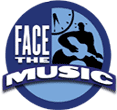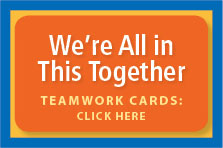A DIFFERENT KIND OF WAY TO CLOSE A SALE

Anyone who owns a business, whether they've been to business school or not, knows one thing: You need customers. No customers, no business. How you get customers, of course, is the question.
In my business, one of the main ways to get business is responding to RFPs -- requests for proposals. Here's how it works: a company hears about you, checks out your website, contacts you, schedules a call, tries to figure out if you're the real deal and, if you pass their sniff test, asks you to submit a proposal.
In the beginning of my career, I would get very excited whenever anyone asked me to submit an RFP. It meant I had a big one on the line, a horse in the race, my hat in the ring, or whatever other metaphor I could conjure up to reinforce my belief that I was actually going to make a living. Like a beanie wearing college freshman, I dove into the proposal writing process with great zeal.
In time, however, responding to RFPs made me cranky. I came to learn that only one in ten proposals would make the grade and that the other nine, which I had so diligently crafted, were merely my response to bogus fishing expeditions from the client. Either they had already decided on their vendor, were testing the waters, wanted to get free insights, or were merely on the hunt for the low cost provider.

So when MTV Networks called, I was betwixt and between. Do I play the game and spend the better part of my day writing a proposal or do walk my talk and do something different?
Since I'd already done some work for MTV, I decided the time was right to experiment, so I asked myself a question: "How can I radically reduce the time it takes me to write a proposal that gets results?" The answer came quickly -- the TWO WORD proposal. In 200 point type, I wrote the words "TRUST US" with an asterisk after the "S" -- and, at the bottom of the page, in 8 point type, noted our fee. That was it. Two words and a bottom line.
On the day my proposal was due, I walked into the office of MTV's CFO, Jim Shaw. After the ritual chit chat and cup of coffee, he asked me if I had the proposal.
"Yes, I do, Jim. But first let me ask you a question. 'Do you get a lot of proposals?'"
He laughed, pointing to a huge stack on his desk.
"And do you like reading proposals?"
Jim looked at me as if I had asked him to stick forks in his eyes.
"Good!" I said. "Then there's a good chance you will love my proposal. But in order to give it to you, I need to get further away from you."
And with that warning, I began backing away across the room. When I got as far away as possible, I stopped and held my proposal in the air.
Even from across the room, Jim could read my two words: TRUST US! Smiling, he beckoned me forward, took the proposal from my hands, lowered his eyes to the bottom line, and extended his hand.
"You got a deal," he said.
Two words in big bold type and a bottom line. That's all it took. Two minutes. Not two hours.
FOR YOUR REFLECTION: "We have 60,000 thoughts per day," said Deepak Chopra. "Unfortunately, all of them are ones we had the day before." That's how most human beings roll. Creatures of habit, we find a groove and stay in it until it becomes a rut. Then it's so deep, we have a hard time getting out of it, so we decorate our walls with Dilbert cartoons and pictures of our last vacation.
Sometimes, we need to do something different. Will this "something different" work every time? No, it won't. But it will work sometimes. My two-word proposal was the perfect thing for MTV. It wouldn't have been the perfect thing for a new client or the IRS, but for MTV it got the job done.
NOW WHAT? Think of a proposal, pitch, or presentation you need to make in the next few weeks. On one side of a piece of paper, write down all the reasonable things you can do to get the gig. Then, on the flip side, write down all the unreasonable things -- new approaches, new ideas, and new ways to make your case. After you write your first wave of unreasonable approaches, write your second wave. Then pick one of them and go for it. Inspiration for you.
Excerpted from Storytelling at Work.
Idea Champions
Mitch Ditkoff
Post a comment
Thanks for signing in, . Now you can comment. (sign out)
(If you haven't left a comment here before, you may need to be approved by the site owner before your comment will appear. Until then, it won't appear on the entry. Thanks for waiting.)














